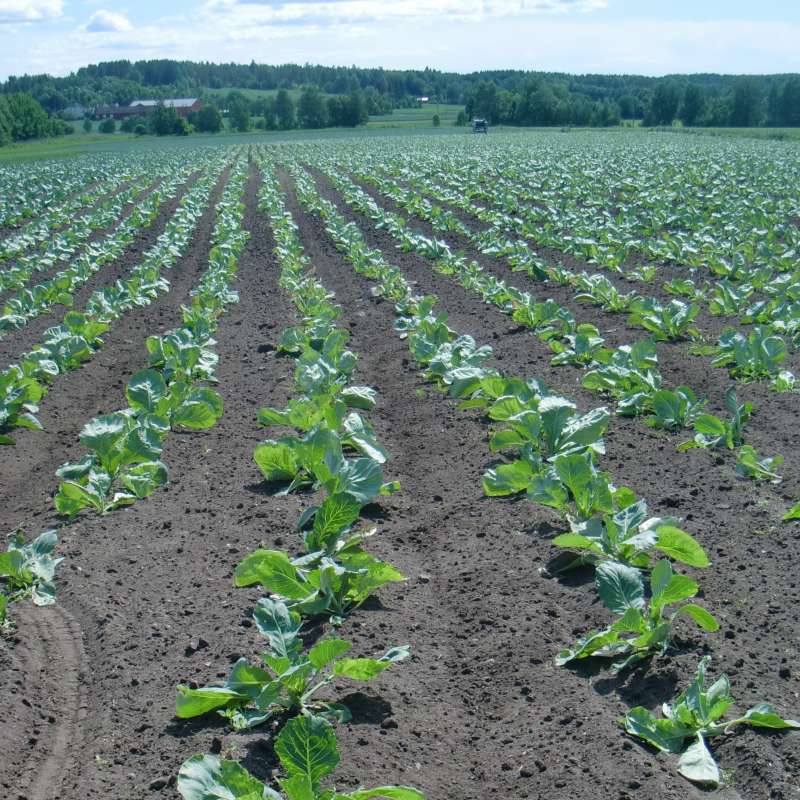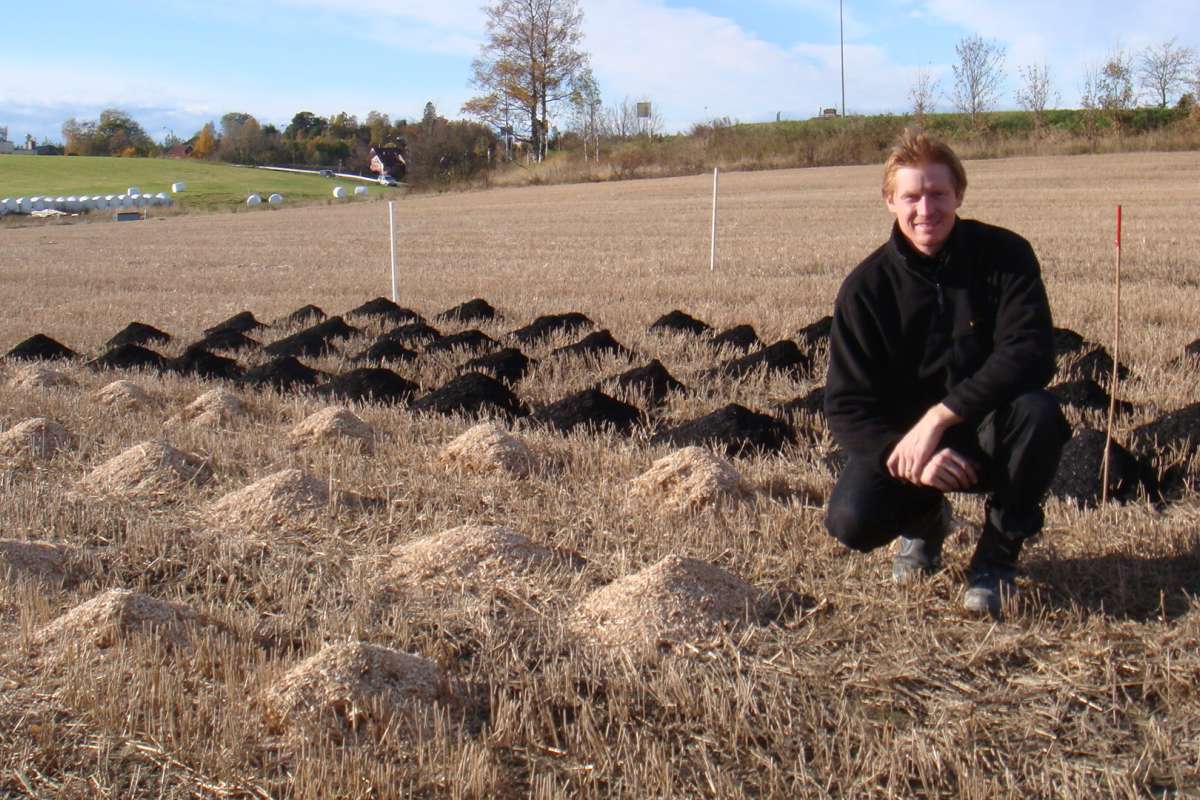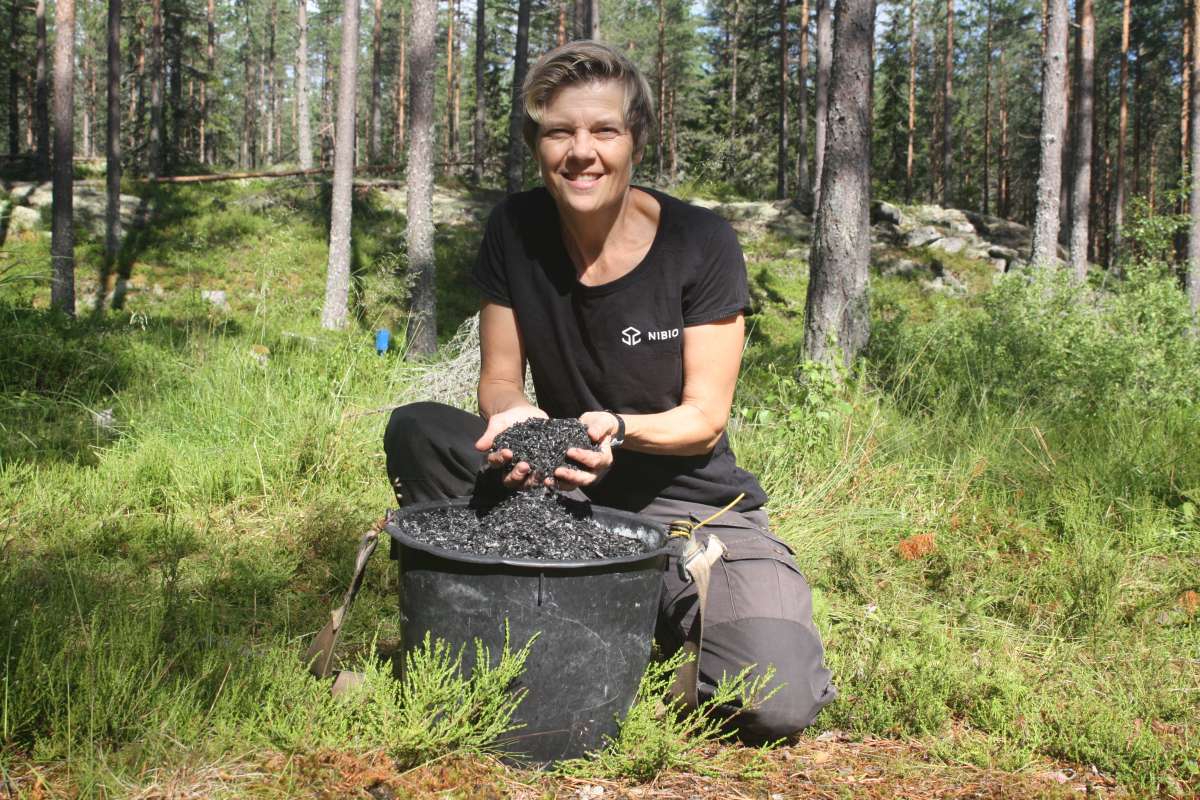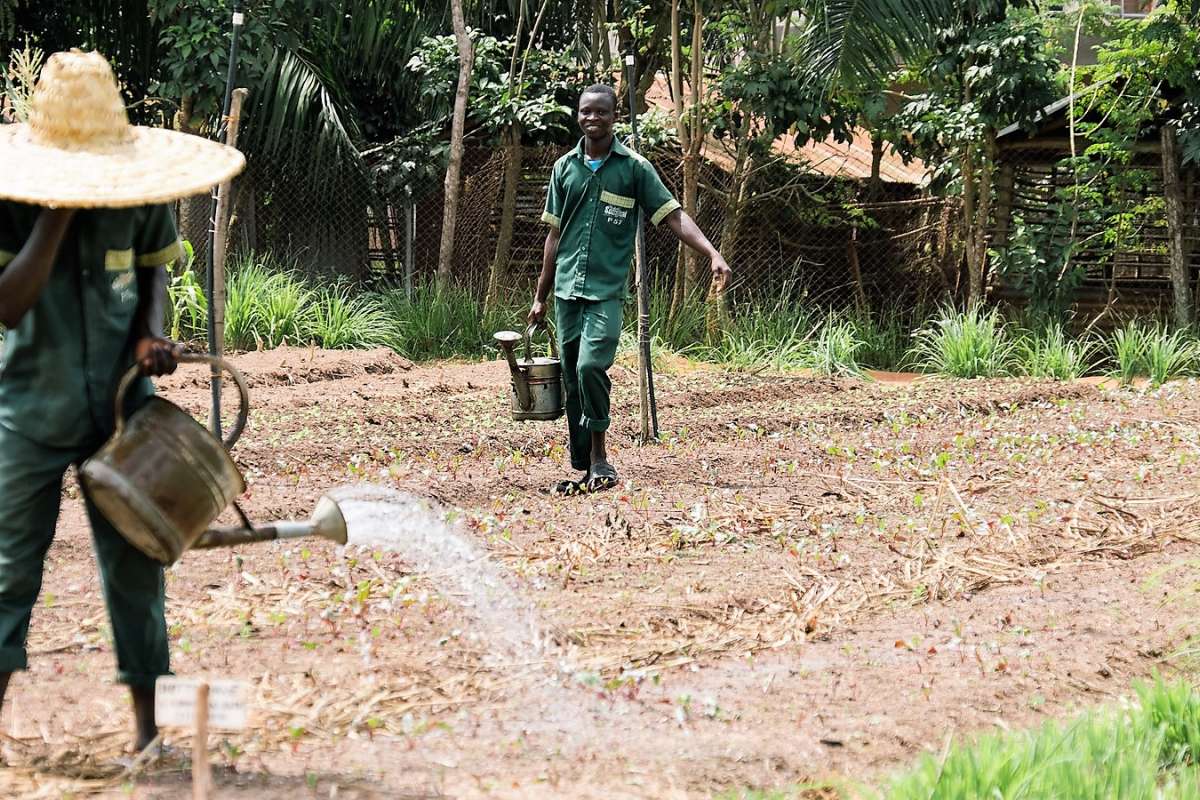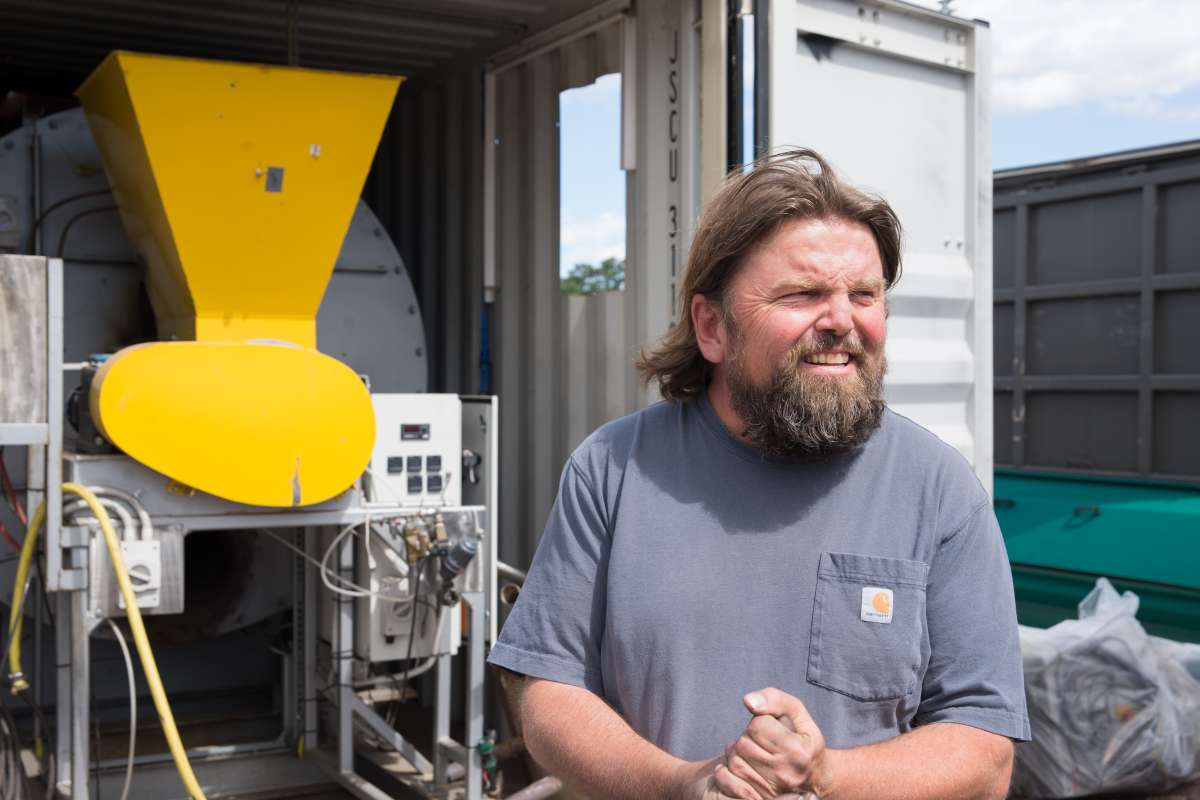Biochar for improved soil nutrient management and reduced pesticide exposure
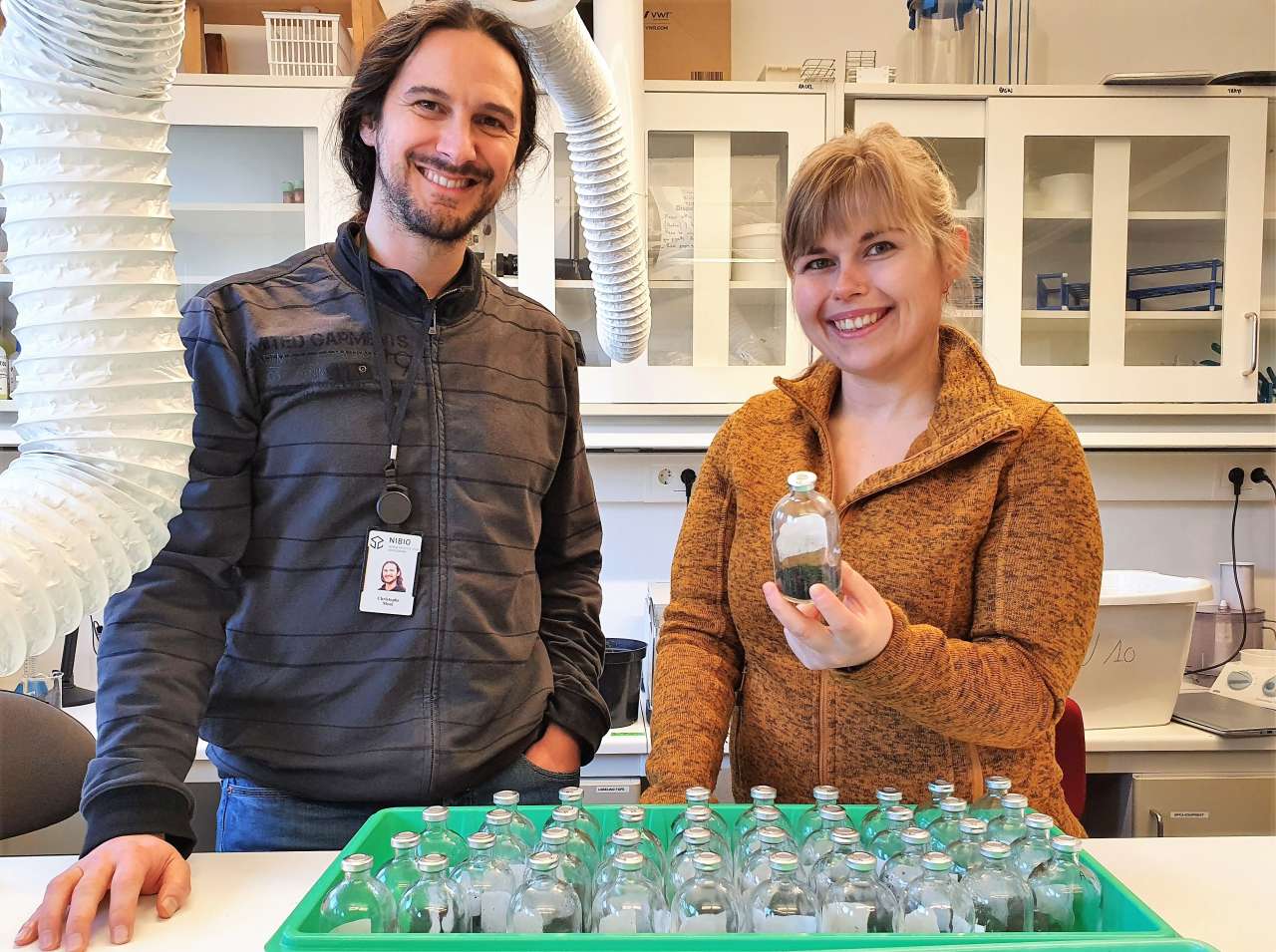
Christophe Moni, research scientist at NIBIO and Eva Farkas, lead engineer at NIBIO, have carried out analysis of interactive effects of pesticides and biochar on soil microbial diversity and function. Photo: Siri Elise Dybdal
Agricultural production practices can have negative impacts on soil quality, environmental and food safety. Now an international team of scientists aim to develop combined solutions to address these concerns, using biochar to store carbon, improve nutrient management in the soil and reduce pesticide exposure.
Soils are the largest reservoir of terrestrial carbon; the total amount of carbon just one meter below the soil surface is about two times greater than in the atmosphere. Relatively small changes in soil carbon content can have an amplified mitigation effect on the Earth’s climate. Cultivation of land, for example, causes emissions of carbon to air and water. Measures to increase storage of carbon in the soil is therefore receiving a lot of attention, notably through international initiatives.
Biochar technologies show promise as tools to impact greenhouse gas emission from soils, but could also help improve soil quality and reduce pesticide pollution to the environment and pesticide residues in food. However, so far there has been a lack of studies integrating these concerns and designing joint resolutions.
In the research project LowImpact, a Chinese-Norwegian collaborative project, scientists are looking for solutions for Low Impact climate smart vegetable production in Norwegian and Chinese soil and climate conditions with reduced pesticide residues in food, soil and water resources.
The project is led by NIBIO in collaboration with The Institute of Plant Protection (IPP) at the Chinese Academy of Agricultural Sciences (CAAS), SINTEF Energy Research, INRAE in France and the University of Almeria in Spain.
Studying combined effects
-We know pesticide and biochar can alter soil organic matter. We also know biochar reduces the effect of pesticide in soil. But the impact biochar has on the soil depends on the biochar properties. All processes are controlled by the soil microbes. We do not know what the combined effect of biochar and pesticide is on greenhouse gas emissions (GHG), says Christophe Moni, research scientist at NIBIO.
In Low Impact, scientists are analysing interactive effects of pesticides and biochar on soil microbial diversity and function. The study includes biochar production, characterisation and analysis, as well as carbon turnover and N2O emission-response to pesticides and biochar amendments.
Moni explains that they have produced two types of biochar with contrasting properties in the project – one from corn stalk and one from corn cob, for use in trials in China and Norway. Then, they have been measuring the effect of pesticides on GHG-emissions with and without biochar in two different types of soil.
The scientists also look at whether biochar can be a solution to mitigate problems caused by pesticides, by reducing its mobility in the soil. Current regulations aim to ensure safe use and the rapid disappearance of pesticides after its intended effect. However, environmental monitoring show that residual amounts of pesticides and their metabolites occur in surface and ground water and may on occasion pose a risk of non-target effects
-The transport of residual pesticide to plant, soil, air and water courses and can be a challenge for maintaining good food security. Using biochar could be a way to help reduce the mobility of pesticides in the soil, he says.
Different material, different properties
-Biochar is a unique material. It can change the soil properties and increase the moisture in the soil, by cooling it down and slowing down the release of N2O, which is especially important in a global warming perspective. It also has a high carbon content and high stability. Buried in soil, biochar can help to keep carbon for up to centuries as indicated by previous studies. This is what makes biochar unique, says Liang Wang, research scientist at SINTEF Energy Research in charge of the production of the corn-based biochar.
According to Wang, biochar can also be produced from different materials; from the forest, agriculture residues, organic waste etc., which means it can be a way of managing waste materials and convert them into valuable products.
-We had many discussions on which feedstock to use for producing our biochar, but ended on corn (maize), one of the largest agriculture plants in the world. The corn has some unique properties such as high in carbon content and nutrient elements, which can end up in biocarbon.
However, it is also important to produce and test biochar with different properties, Wang says:
-You can compare producing biochar with cooking food, in the way that we can alter properties of biochar with for example high and low temperatures, longer and shorter cooking time etc. The production conditions have significant effects on the yield and properties of solid biochar and further the performance of it for different applications.
The biochar will be tested in the laboratories in Norway and China in terms of its behaviors in soil and effects on soil properties and N2O emissions.
-The test results are important and necessary to link properties of biochar and production conditions. Identification of such links and correlations can help the biochar producer to improve and tune production conditions to produce biochar with desired properties. In addition, it is also possible to alter and upgrade biochar properties by certain post treatments. Wang highlights.
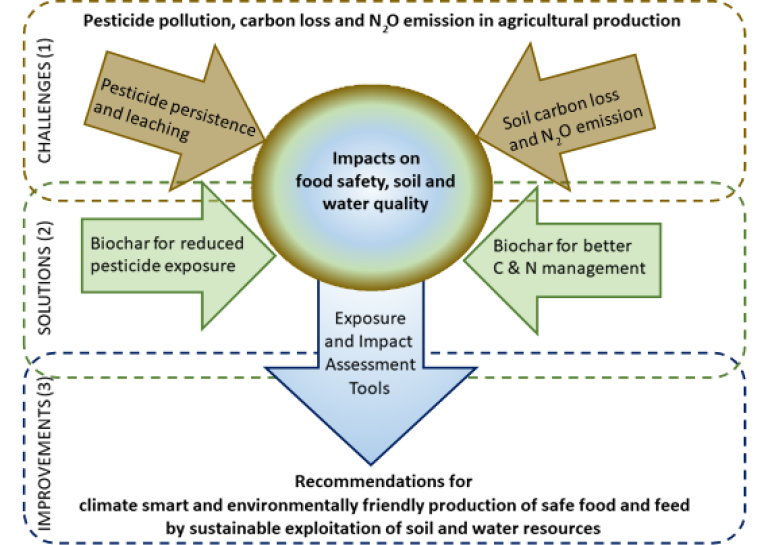
Not clear recommendations
Tests are ongoing in Norway, but the pandemic has somewhat slowed the progress.
-In addition, tests take a long time, we want to see the long-term effects, says Wang.
So far, the scientists have however gathered some knowledge through the analysis. Moni explains:
-Biochar amendment can either reduce or increase the soil organic matter stability. This was already well-known before we carried out our study. We see that the sensitivity to pesticide seems to be a soil type property e.g., dependent on the microbial community in the soil. So, the nature of the effect is controlled by the interaction between the biochar and soil types. So far, it is not possible to predict the effect of biochar amendment before testing it. Even more so with the presence of pesticide, he points out.
According to the NIBIO research scientists, it has so far been hard to reach conclusive recommendations:
-Basically, we can say that the type of soil has an effect, biochar has an effect, corn cob and corn stalk biochar have an effect, but not the same - and adding pesticide change the results. So what is the recommendation? It depends on the soil, the biochar and the pesticide. In one soil it works, but not in the other. We do not have enough cases, and therefore, we can’t give clear recommendation. We see it is very case specific. One thing we did consistently see is that when we add pesticide, biochar decomposes significantly faster in one type of soil. But the trials show that it is hard to generalize. The study needs to be replicated in more soil types to enable us to conclude on the biochar interaction – meaning to identify the soil property that control the biochar effect. to make conclusions, he says.
Important to collaborate across borders
Jihong Liu Clarke, Research Professor/Coordinator for China Relations at NIBIO says that another important aspect of the Low Impact project is achieving interesting results that can be shared amongst the partners, with the aim to help the future reduction of pesticide pollution and contribute to food safety:
-The Low Impact project is one of many activities in the NIBIO-China collaboration. At NIBIO, we have a decades-long collaboration with China in agriculture areas to promote food security and safety. Norwegian-Chinese experience and knowledge exchange is a win-win situation for both countries. And it is important to note that China has only 9% airable land, but have to feed around 20% of the world population. It is a serious issue for world food security. Agriculture is thus in particular important for China, she says.
-In addition to the scientific aspects, through such collaborations, we also learn about culture from each other which contributes to the social understanding. This is necessary for successful agricultural collaborations, the research professor concludes.
KONTAKTPERSON

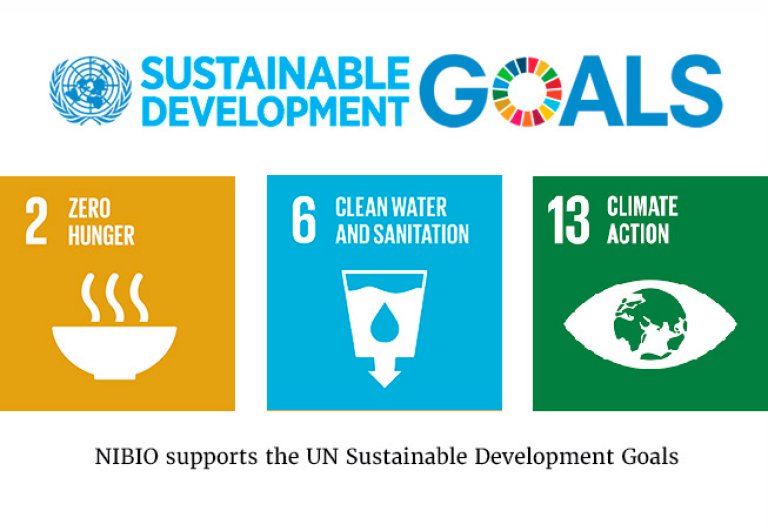
CARBON IN SOIL
Cultivation of land causes emissions of carbon to air and water. Emissions of CO2 from soil and vegetation, in response to cultivation, is globally estimated as 1/3 of total anthropogenic emissions the last 150 years. Loss of soil carbon is furthermore a threat to the agricultural production capacity and biodiversity. With this in mind, increased soil carbon is important to reduce CO2-emissions to the atmosphere and to maintain a sustainable agriculture.
Organic carbon has many functions in the soil:
- Source of energy to soil-living organisms
- Soil structure
- Resistance against erosion
- Storage, uptake and release of nutrients
- Water retention
- Colour (which affect the albedo-effect) and soil temperature
BIOCHAR
Biochar with versatile properties can be used to amend the soil properties, realize storage of carbon in soil and mitigate pollutions as well. Biochar is generally produced from a process called pyrolysis, where biomass is exposed to high temperatures with limited or absence of oxygen. The biochar has high stability in the soil with high resistance against biological decomposition. Biochar that is ploughed into the soil can therefore be stored for centuries.
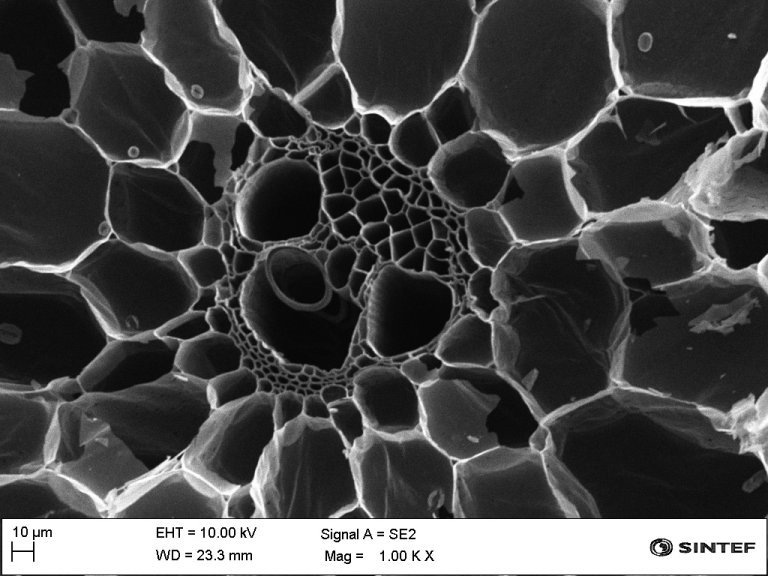
PESTICIDE POLLUTION
Pesticides are chemicals used to control weeds, plant pathogens and insect pests. Pesticides can also be a key source of environmental problems within an ecosystem.
LOW IMPACT – INTERNATIONAL COLLABORATION
To achieve the project goals the Norwegian Institute of Bioeconomy Research (NIBIO) and the Institute of Plant Protection at the Chinese Academy of Agricultural Sciences (IPP CAAS) have partnered up with SINTEF Energy Research, The University of Almeria European Reference Laboratory for pesticide residues in Fruit and Vegetables (EURL-FV), and the French National Institute for Agriculture, Food and Environment (INRAE) UMR Agroecologie, Dijon.

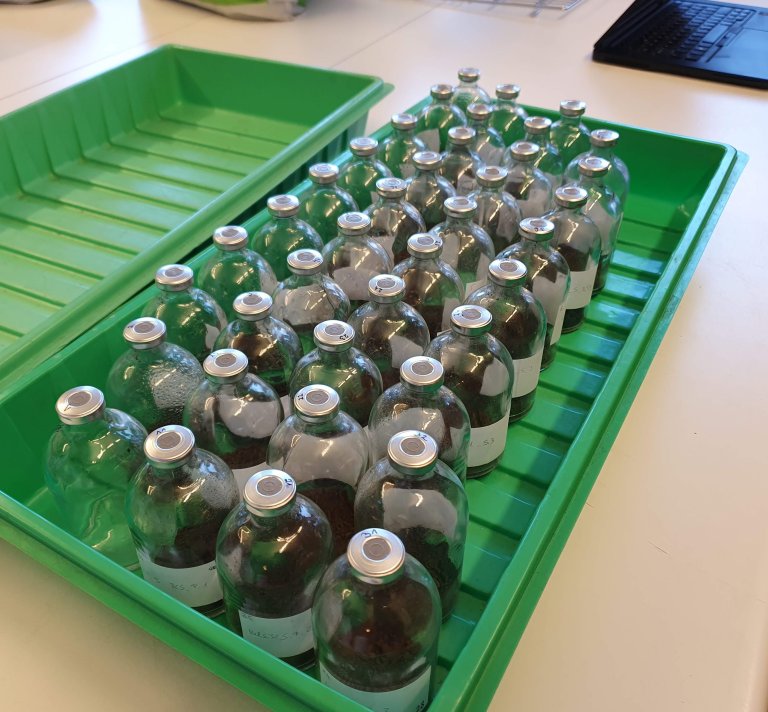
KONTAKTPERSON

Tekst frå www.nibio.no kan brukast med tilvising til opphavskjelda. Bilete på www.nibio.no kan ikkje brukast utan samtykke frå kommunikasjonseininga. NIBIO har ikkje ansvar for innhald på eksterne nettstader som det er lenka til.

